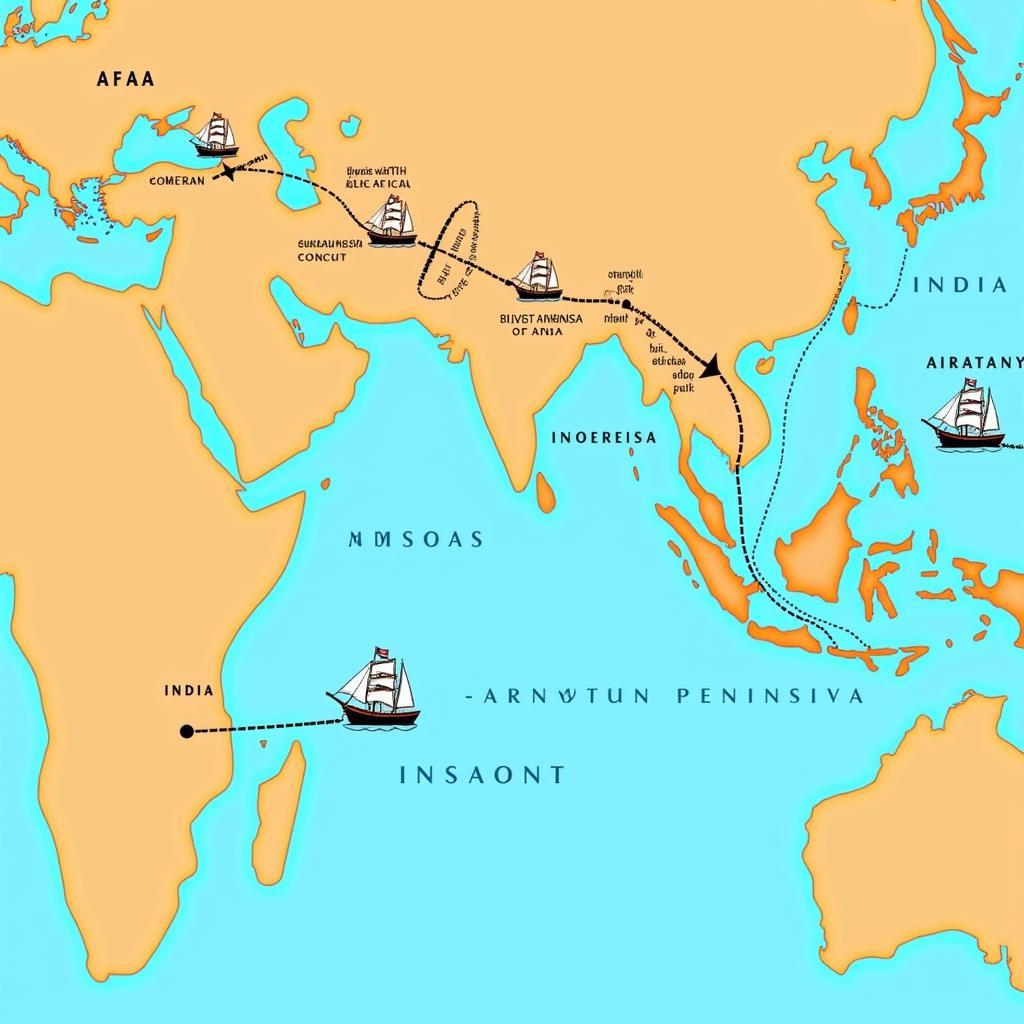Discovering the Meaning Behind African House Names
African House Names hold a rich tapestry of cultural significance, reflecting history, values, and aspirations. They are more than just identifiers; they are narratives etched onto the very foundations of a home. These names offer a glimpse into the heart of African communities and the unique stories they tell.
The Significance of African House Names: More Than Just an Address
African house names are deeply rooted in tradition and serve a variety of purposes beyond simple identification. They often reflect the homeowner’s hopes, dreams, or values, offering a window into their personal philosophy. For example, a name like “House of Peace” might signify a desire for harmony and tranquility, while “House of Prosperity” could reflect an aspiration for success and abundance. These names also serve as a source of pride and identity, connecting individuals to their heritage and community. They become a part of the family’s narrative, passed down through generations and imbued with meaning that deepens over time. This naming tradition fosters a sense of belonging and continuity, linking the present to the past and the future.
What are the common themes in African house names? Themes often revolve around gratitude, faith, family, and aspirations for the future. Some names pay homage to ancestors, while others celebrate achievements or significant life events. The practice of naming houses is widespread across the continent, although the specific customs and traditions vary from region to region. In some cultures, the naming ceremony is a significant event involving community elders and rituals, further emphasizing the importance of the house name. It becomes a symbol of the family’s place within the larger social fabric.
Exploring Regional Variations in African House Naming
While the practice of assigning names to houses is common throughout Africa, the specific traditions and meanings vary considerably from one region to another. For instance, in some West African countries, house names are often chosen to reflect proverbs or wise sayings, imparting wisdom and guidance to those who dwell within. In other regions, names may be derived from historical events, local landmarks, or even the surrounding natural environment. This diversity reflects the rich tapestry of cultures and languages that make up the African continent. In East Africa, for example, names might reflect the clan or family lineage, further solidifying the connection between the house and its inhabitants’ heritage. Understanding these regional nuances provides a deeper appreciation for the cultural significance of African house names. They are not merely labels but rather expressions of identity, history, and community values.
What’s in a Name? Unpacking the Cultural Nuances of African House Names
The process of choosing an African house name is often a thoughtful and deliberate one, imbued with cultural significance and personal meaning.  Cultural Nuances of African House Names and Their Selection Process Sometimes, the name is chosen by the family patriarch or matriarch, while in other cases, it may be a collaborative decision involving the entire family or even the wider community. The name itself can be inspired by a variety of sources, including proverbs, religious beliefs, historical events, or personal aspirations. For instance, a family might choose a name that reflects their gratitude for a blessing or their hopes for a prosperous future. The name then becomes more than just an identifier; it becomes a symbol of the family’s identity and values. It’s a testament to their history, their aspirations, and their place within the community. Check out resources like african instruments names to delve further into the rich cultural heritage of Africa. You might also be interested in exploring african karaoke songs or learning more about african and american babies.
Cultural Nuances of African House Names and Their Selection Process Sometimes, the name is chosen by the family patriarch or matriarch, while in other cases, it may be a collaborative decision involving the entire family or even the wider community. The name itself can be inspired by a variety of sources, including proverbs, religious beliefs, historical events, or personal aspirations. For instance, a family might choose a name that reflects their gratitude for a blessing or their hopes for a prosperous future. The name then becomes more than just an identifier; it becomes a symbol of the family’s identity and values. It’s a testament to their history, their aspirations, and their place within the community. Check out resources like african instruments names to delve further into the rich cultural heritage of Africa. You might also be interested in exploring african karaoke songs or learning more about african and american babies.
Dr. Abena Osei, a renowned anthropologist specializing in African culture, explains, “African house names are not just arbitrary labels; they are expressions of identity, history, and community values. They offer a fascinating glimpse into the rich cultural tapestry of the continent.”
Professor Kwame Nkrumah, an expert in African history and traditions, adds, “The practice of naming houses is a powerful symbol of belonging and continuity, linking the present to the past and the future.”
Mamadou Diallo, a community elder from Senegal, shares his perspective: “In our village, the house name is chosen carefully, often reflecting a proverb or a wise saying. It serves as a reminder of our values and a source of guidance for future generations.”
Conclusion: The Enduring Legacy of African House Names
African house names represent a powerful connection to heritage, reflecting cultural values and individual aspirations. They are more than just labels; they are stories etched onto the very foundations of a home. By understanding the significance of these names, we gain a deeper appreciation for the rich tapestry of African culture. These names embody the spirit of community, family, and hope that defines so much of African Life. As we continue to explore the diversity of African traditions, let’s not forget the stories whispered in the names of its houses. For further exploration of African culture, check out african english film and african countries do not border in written in c.
FAQ
-
What is the purpose of African house names? They serve as identifiers, reflect values, and connect individuals to their heritage.
-
Who chooses the house name? It varies, sometimes the family head, sometimes the whole family.
-
What inspires African house names? Proverbs, religion, history, personal aspirations, and more.
-
Are house naming traditions the same across Africa? No, they vary regionally, reflecting diverse cultures.
-
Why are African house names important? They symbolize identity, history, community, and hope.
-
Where can I learn more about African culture? Resources like websites and books on African history, art, and traditions.
-
How do African house names connect to the past? They often honor ancestors or reflect historical events.
Need Help?
When you need support, please contact Phone Number: +255768904061, Email: kaka.mag@gmail.com Or visit: Mbarali DC Mawindi, Kangaga, Tanzania. We have a 24/7 customer service team.

